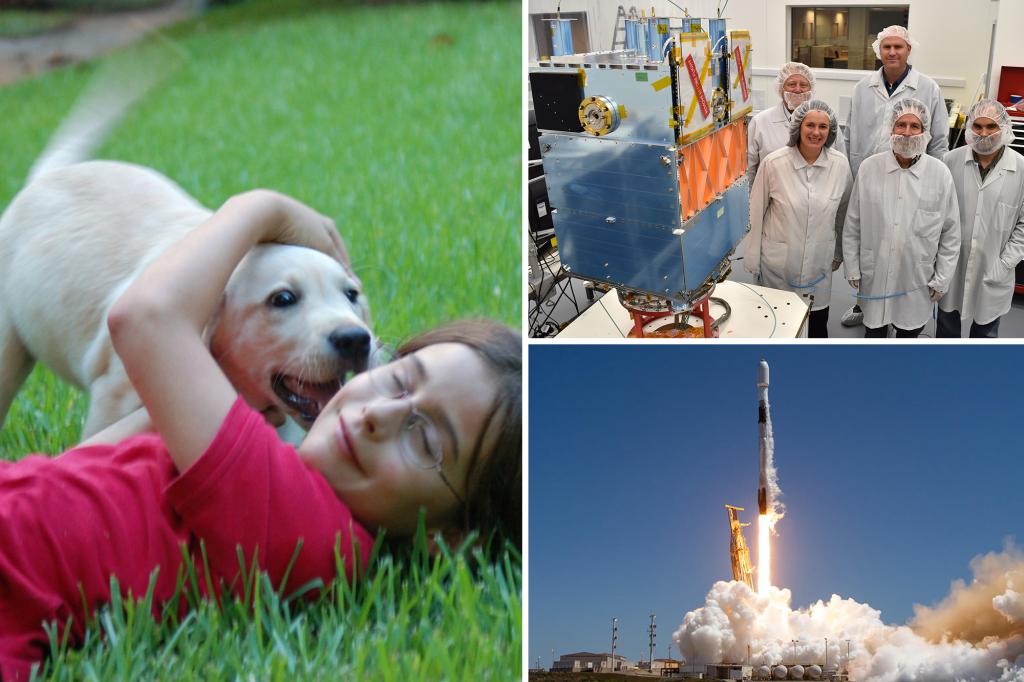Bone voyage!
A beloved dog named Franz will take his final leap this weekend — into Earth’s orbit.
The yellow labrador’s ashes will be on board the inaugural Perseverance Flight from Texas-based Celestis Inc., which is scheduled to launch around 5:30 p.m. Sunday from Vandenberg Space Force Base in Santa Barbara, CA.
Carrying a total of 166 titanium and aluminum capsules, each about a quarter to a half-inch in size and filled with DNA or cremated remains, the 23-foot-tall SpaceX Falcon 9 rocket will take two trips around Earth’s low orbit at a mind-boggling 17,000 mph.
The space flight will last about three hours before the rocket — still carrying its priceless payload — re-enters the atmosphere and lands in the Pacific Ocean somewhere between Alaska and Hawaii, according to Celestis CEO and co-founder Charles Chafer.
A recovery ship, which was already out at sea Friday in anticipation of the launch, “will track the incoming rocket, hopefully get a visual on it, and then go pick it up out of the ocean,” Chafer explained.
The capsules will first be transported to Germany, then, within two months, distributed back to the families, who each paid a whopping $3,500 to send their loved one to the stars.
While the price to send Franz on the voyage was “a lot more” than the pooch itself, his owner, Harvin Moore, said with a laugh, it was only fitting for the “space-fanatic” Moore family to send the pup beyond the stratosphere.
“He was the best dog, just so soft and nice and loved hugs,” recalled Moore, 60, who lives in Dripping Springs, Texas, just outside Austin.
Franz, who was 13 when he died in October 2020, was more like a sibling than a pet to Moore’s now 26-year-old daughter, Elizabeth, and son, Quinn, 21, he said.
Now, the family can’t wait to watch the good boy go galactic.
“The emotional power of being with a group of people who are celebrating the life of a loved one in this way … it’s amazing. It’s nothing we’ll ever forget,” said Moore. “It’s just pure joy.”
“Many people whose ashes and DNA are flying are people that always wanted to go to space in their lifetime but were never able to do that. It also helps families move from feelings of grief to joy,” Chafer said.
The cremated remains of Wesley Dreyer — an aerospace engineer who helped investigate the cause of the Space Shuttle Challenger’s shocking explosion after takeoff on Jan. 28, 1986 — will also be on board the Perseverance Flight, as well as DNA from a living, 3-year-old German boy.
Read the full article here







